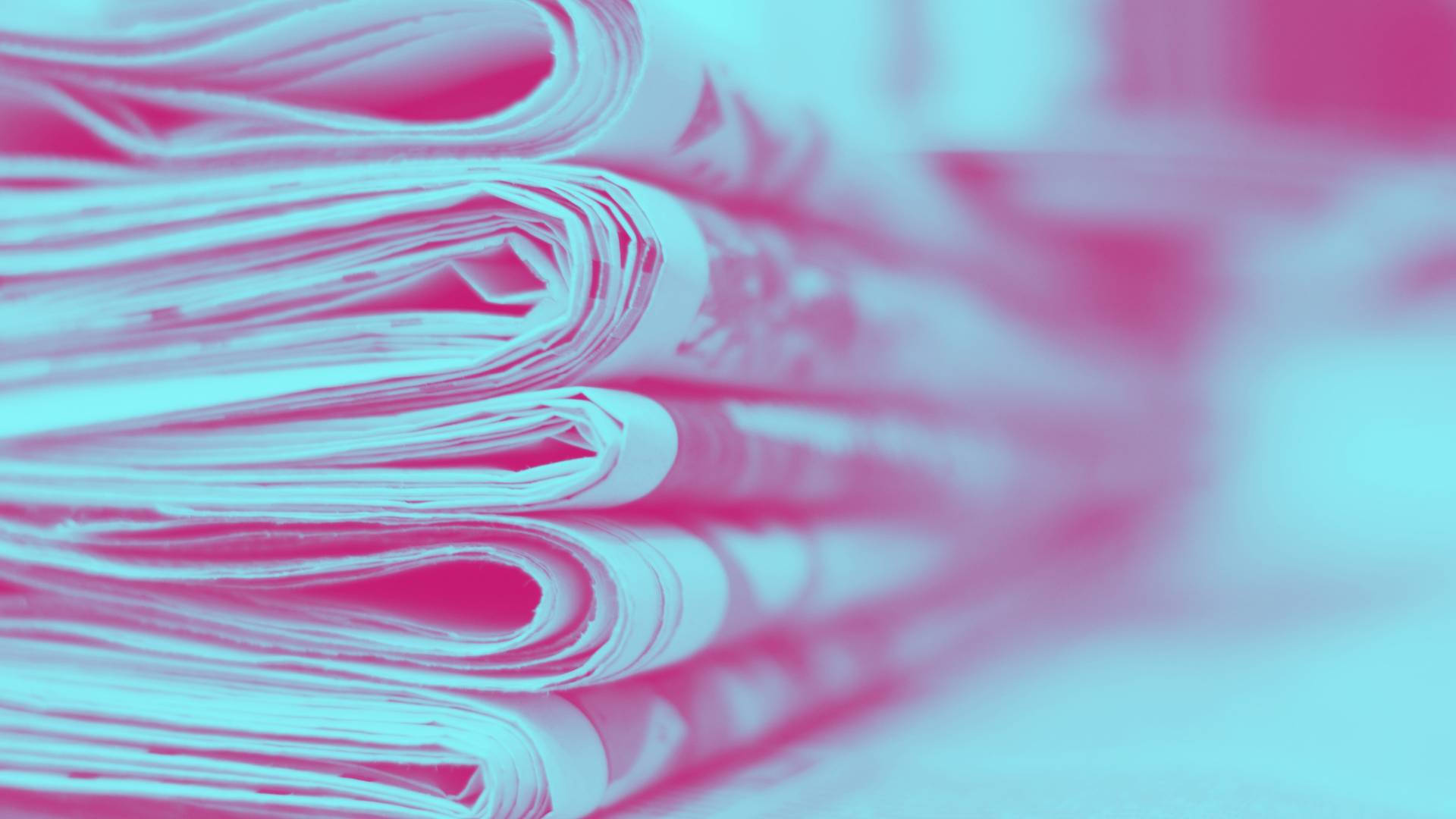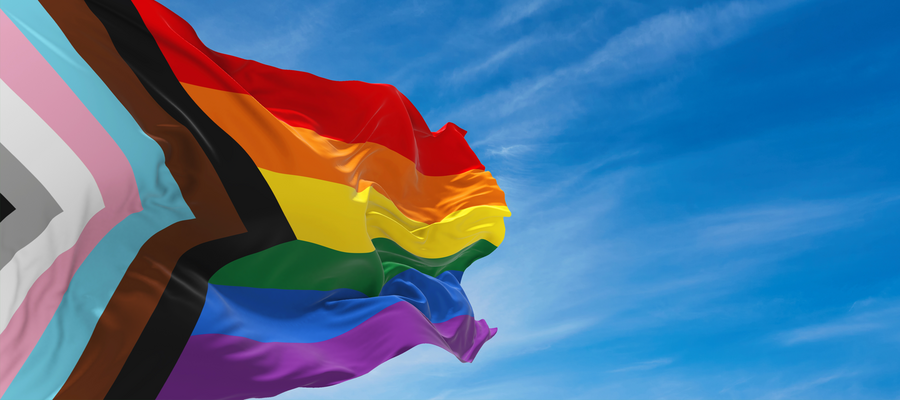A Manchester Pride Festival is organised each year to celebrate Pride in Manchester. August Bank Holiday celebrations this year meet a key charitable objective, celebrate LGBTQ+ life in Greater Manchester and campaign for broader equality for queer and non-binary individuals.
As part of Manchester's Pride celebrations, we asked Justin Moore (Associate Director at Become) a few questions about his experiences as a LGBTQ+ professional and what Pride means to him.
1. What does Pride mean to you personally?
For me personally, Pride is a celebration! It is a chance to meet with friends, have a dance, laugh and sing our hearts out! We are very lucky to live in a supportive, inclusive city here in Manchester, but we never take it for granted. It’s a great opportunity to meet friends from across the UK for a weekend of fun, but we also remember the pillars of our society who fought for our rights and got us to where we are today. Being visible in a big city and giving hope to young people who have not yet come out, is really important. We send a message to them to say – it's OK, you’re not alone and it gets better!
We always watch the Manchester Pride Parade and support the charities, causes and activists who are all incredibly important to the LGBTQ+ community. The candlelit vigil is a key event during the weekend of Manchester Pride. We’ve made great strides in the fight against HIV & AIDS, but we’ve also lost a lot of friends & family along the way. This vigil gives us a chance to reflect & remember them.
Pride as an event, no matter where it is based, is extremely important to minorities across the LGBTQ+ network. We still have areas where there needs to be improvement in day-to-day life and visibility it key to this. Pride sends a message to everyone that we have rights too, and we want equality. Love is Love.
2. In terms of pride and any other relevant identities, how do you identify?
I identify as a cis gay man, and my pronouns are he/him/his.
3. What makes you proud of who you are?
For me, Pride is being able to live my authentic self, without any fear of negative reactions from anyone else. My Pride is having a boyfriend, family, close friends, and work colleagues who accept me for who I am - a close network of support and allies who enrich my life and fill it full of love & laughter (most of the time!). Having success and longevity in my career also makes me proud of what I have achieved at work. In recruitment I help people in their career paths, and I also offer employment to my work colleagues, who grow and bloom as time goes on. Their success makes me proud!
4. Did you ever experience discrimination based on how you identify yourself? If so, in which ways were you able to overcome this? Can you offer any advice on how to handle a situation like that?
My life has always been influenced by the way I was treated at my grammar school by other pupils and the teachers. Bullying in any form should not be acceptable, and especially at school when you’re at a vulnerable age. Kids can be very cruel, and I didn’t have many allies growing up. I’ve never been able to hide the fact I’m gay, and people will often assume I’m gay when they meet me (which is fine). Any negative comments were deeply wounding, and I still remember how it made me feel back then. I was the master of “putting on a brave face” and answering back with a vicious edge. Thankfully I’ve calmed this down and channel my energies into more constructive debate or challenge their rationale.
My advice is “don’t let the idiots get you down!” ignore the small things and stand up to the big things! The people who comment about you are the ones who actually have the issues. If you have allies around you, then ask for their support – you're not alone.
5. What impact do you think being an LGBTQ+ member has had on your professional career?
I feel more empathy with minorities because I know how it feels. Diversity in the work place is really important to me, and I’m very conscious that everyone in my business feels included and they can be themselves without any fear of negativity. I encourage different thinking & new ideas. Everyone has a voice and can contribute to the workplace culture & atmosphere.
In my early career, I always wanted to be Creative, and I embarked on a career in Graphic Design for 4 years. It was fine, and I didn’t come up against any negativity for being gay – I felt accepted. When I first ventured into Recruitment things changed dramatically. During this period, I always felt as though I had to work harder and prove myself more than everyone else. There were quite a lot of bad vibes from certain work colleagues, and I couldn’t wait to get out of there! It gave me a tough introduction to Recruitment, however, I knew I could make things a lot better for minorities in the workplace, and that’s what I always strived for. I have influence at Become, and it gives me the ability to make sure people view us Recruiters in a more positive light, without all the stereotypical negative traits we’re often associated with.
6. How do you feel supported at work?
I’m lucky to have surrounded myself with work colleagues who make it a joy to come into work every day. I can be my authentic self and it’s allowed me to bloom in my career. I strongly feel that they would be my allies if that was ever needed, and they’d “have my back!”
I’m part of the DEI Committee for Empresaria plc (our Group Company), which allows me to be a voice for the LGBTQ+ community, and make sure we feel included in decision making.
7. Apart from your work committees, are there any other organisations or groups that you are involved in that support LGBTQ+ rights? Do you have any suggestions for those interested in getting involved?
I’ve been a volunteer Marshall at Manchester Pride Parade in the past, which was great fun! Prides across the nation have different volunteer opportunities, so I’d definitely recommend those positions.
When the credit crunch hit the UK, I started a Village Circle event in Manchester which was a networking group for LGBTQ+ professionals. I organised guest speaker events and raised money for different LGBTQ+ charities. During a difficult time, it helped bring people together and connect for business opportunities & support.
I also support the Terrence Higgins Trust charity each month.
8. Is there anything that you can share with those who have not yet come out but wish to do so?
Everyone is different, so there is no set rule about when or how you come out. It has to be when you feel it’s right for you and it needs to be on your terms. Make sure you have some support or allies around you who can help. There are organisations who offer professional support such as the LGBT Foundation. There is always someone to talk to somewhere, don’t go through things on your own.
I found it easier to come out to close friends initially, and then I gradually built up the courage to tell my family. It didn’t happen overnight, but after I did come out, I felt much better within myself.

